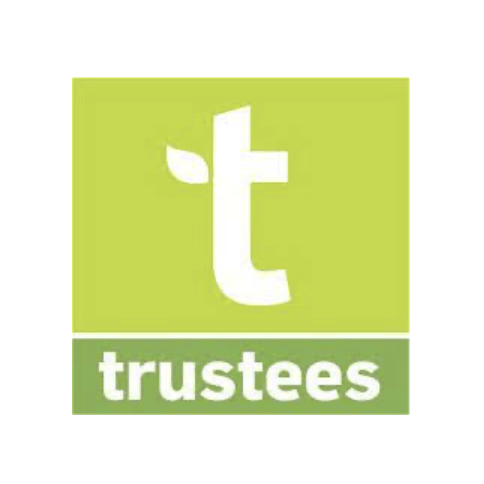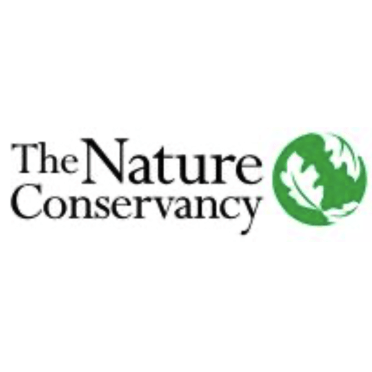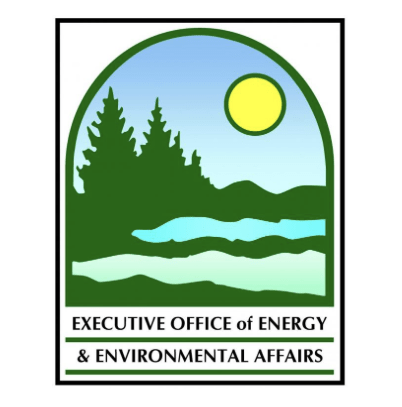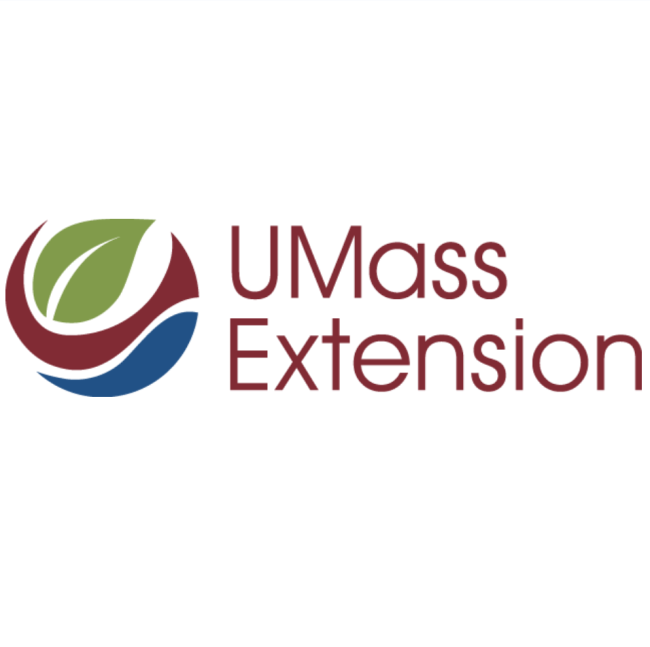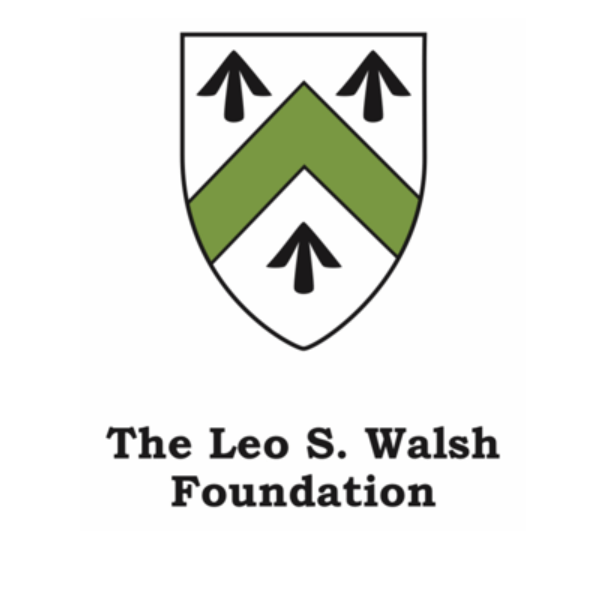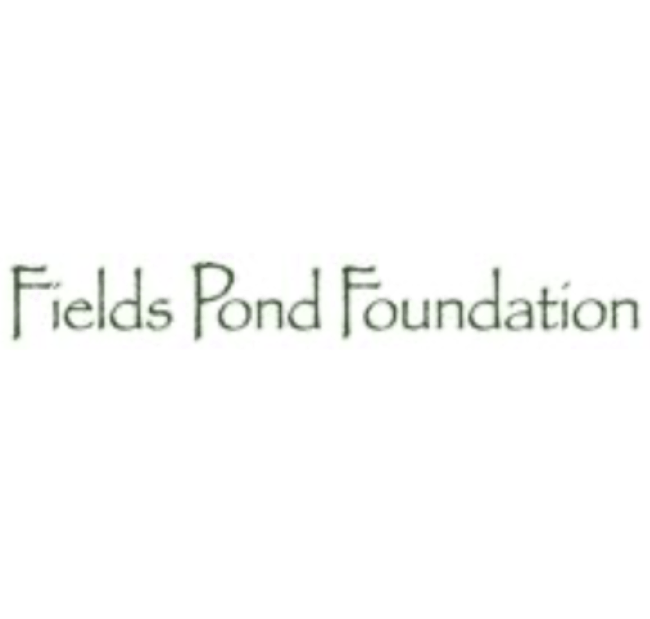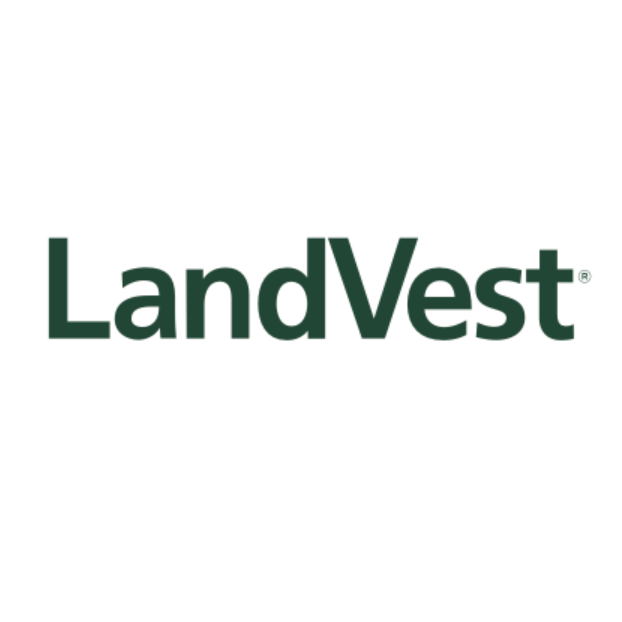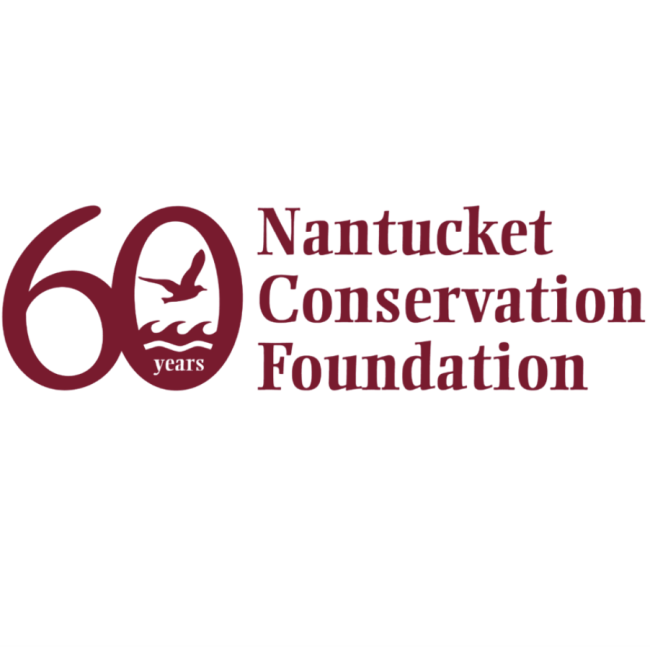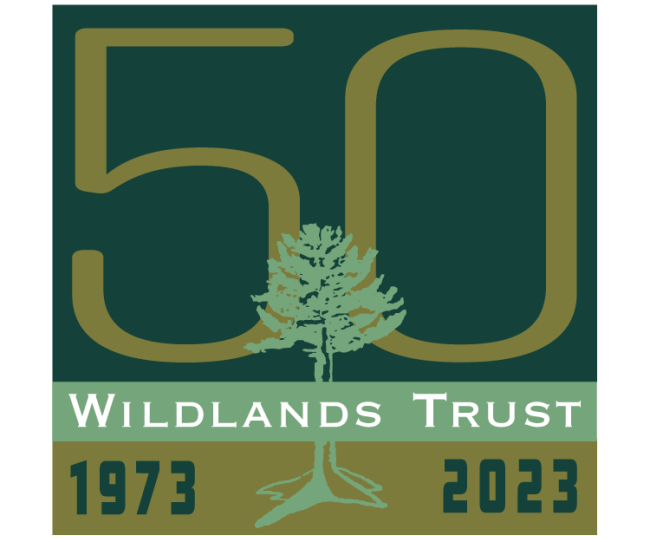Sponsors
Lead
Patron
Supporter
Berkshire Natural Resources Council
BSC Group, Inc.
Buzzards Bay Coalition
Franklin Land Trust
Essex County Greenbelt
Kestrel Land Trust
Land Stewardship Inc.
Land Trust Alliance
MA 401(k) CORE Plan for small nonprofits
New England Forestry Foundation
Norcross Wildlife Foundation
Sheriff's Meadow Foundation
Sudbury Valley Trustees
SWCA Environmental Consultants
Tighe & Bond
USDA/NRCS
Nine of the sessions at this year's conference were videotaped. Search for "videotaped" on this page, then tap the + sign and see the recording link in the content box.
A number of sessions have also posted collateral on this page. Find the session you're interested in, tap the + sign and see the links, if any, in the the content box.
Conference - Saturday, March 23, 2024 8 a.m. - 4:30 p.m.
In-person at UMass Amherst Campus Center, 1 Campus Center Way, Amherst.
The keynote address and nine of the sessions (as indicated) were videotaped. Recordings and any slides or other materials provided by speakers will be linked under the individual sessions listed below.
Complementary field trips around Massachusetts - Fridays, April 26 and May 17. Included with registration.
Schedule (PDF) | Descriptions (PDF) | Land Conservation Terms & Acronyms (PDF) |
Exhibitors | Exhibitor Locations | Forester CEUs March 23 sessions (PDF) | Forester CEUs pre-conference talks | Forester CEUs field trips | Notice of Photography and Filming (PDF) | Venue Floor Plans (PDF) or direct link
Sponsor Talks
Talks were held via Zoom. If you selected your talk choice during conference registration, the Zoom registration link was sent to you.
Wednesday, March 13
Noon - 1:00 p.m.
UMass Extension | Managing New England Forests Threatened By Emerald Ash Borer
Paul Catanzaro, Professor, UMass Amherst & State Extension Forester
Recording of the presentation
Presentation (PDF)
Managing New England Forests Threatened by Emerald Ash Borer (PDF)
The impacts of EAB have been and will continue to be significant on our northeastern ash species. At this point, EAB is firmly established throughout our region. While that reality is out of our control, the way in which we respond to EAB is something that we can control. The decisions we make about our response to EAB will determine the kinds of benefits our forests will continue to provide. Our decisions will also be the difference as to whether our ash species disappear from our landscapes forever or remain a part of our northeastern forests for generations to come, continuing to provide their unique ecological and cultural benefits. There are adaptive strategies available to address the loss of ash from our forests as well as to help ash species survive. This webinar discussed these adaptive strategies and opportunities for land trusts to use their own land and their relationships with landowners to sustain this important species in our forests.
Thursday, March 14
Noon - 1:00 p.m.
The Trustees | Stewardship Strategies - How We Prioritize, Plan For, and Resource Our Property Care
Fran Blanchard, Vice President, Stewardship, The Trustees
Ross Moran, Executive Director, Westport Land Conservation Trust
Recording of the presentation
Presentation (PDF)
WLCT Maintenance Analysis and Projects List Mar 2024 (Excel)
Questions around how we identify, and resource stewardship needs are a common challenge. There is always an unlimited amount of stewardship work that could be done on any given day or property. And with new weather patterns, more severe storms, we are constantly responding to changing needs on our properties.
For this session, we talked about common themes in our approach to property care including: developing standards for resource care, making data driven decisions about priorities, and creative solutions for resourcing this work.
Sponsored by:
MA 401(k) CORE Plan for small nonprofits
Tuesday, March 19
4:00 - 5:00 p.m.
EOEEA | An Integrated Approach to Land Use, Conservation & Climate
Stephanie Cooper, EEA Under Secretary, Executive Branch
Amy Sheldon, Vermont State Representative, Legislative Branch
Mark Wamsley, Conservation Director, Kestrel Land Trust
David Foster, Co-coordinator, Wildlands and Woodlands / Director Emeritus. Harvard Forest, Harvard University
Moderator: Liz Thompson, Wildlands, Woodlands, Farmlands & Communities
Recording of the presentation
Links for Wildlands, Woodlands, Farmlands & Communities - David Foster
WWF&C vision and website
Wildlands in New England report
From the Ground Up -- Quarterly of WWF&C
Relevant links to EEA initiatives – Stephanie Cooper
Farmland Action Plan
Resilient Lands Initiative
Healthy Soils Action Plan
Resilient Mass
Clean Energy & Climate Plan
Kestrel Land Trust – Mark Wamsely
Kestrel website
Protected Lands in the Pioneer Valley
Vermont State Legislature – Amy Sheldon
Representative Amy Sheldon
Act 59 An act relating to community resilience and biodiversity protection
H 687. An act relating to community resilience and biodiversity protection through land use (Act 250)
During this panel discussion, scientists, conservationists, and policymakers discussed the need for an integrated approach to conservation that connects working and wild forests, farmlands, and seacoasts with the future for the benefit of all communities — urban to rural, human, and wild. Land regulation, land conservation and land development are all vital for climate, habitat and social resilience.
Sponsored by:
Wednesday, March 20
4:00 - 5:00 p.m.
The Nature Conservancy | Conserving Healthy Rivers and Lands in Massachusetts: TNC Goals for 2030
Barbara Charry, Director of Rivers and Lands, TNC in Massachusetts
Rich Cavanaugh, Land Protection Manager, TNC in Massachusetts
Recording of the presentation
In the face of the dual climate and biodiversity crises, The Nature Conservancy has established its 2030 Goals for people and nature, recognizing that freshwater is central to achieving a livable climate, healthy communities, and a thriving natural world. In this talk, attendees learned how TNC’s 2030 Goals are guiding its work in Massachusetts integrating its freshwater and land protection efforts and prompting other initiatives such as the newly launched Resilient and Connected Appalachians Grant Program.
Conference
Saturday, March 23
8:00 - 9:00 a.m.
Registration / Light Breakfast / Visit Exhibits
9:00 - 10:15 a.m.
Concurrent Sessions
Stewardship Tips and Trends from Terrafirma | Room 162
Brendan Annett, Gabriel Martinez
Terrafirma Risk Retention Group LLC is a unique charitable risk pool for conservation organizations that helps its members uphold the promise of lasting conservation. This presentation provided a high-level overview of: • Terrafirma’s history, structure, benefits, costs, and coverage, • data and analysis from Terrafirma’s 220+ covered claims, and • selected cases and data trends relevant for MA land trusts. It will highlight stewardship tips and trends. Participants took away information that they can use to help reduce disputes, know common issues affecting conserved properties, and understand how Terrafirma can benefit their land trust’s risk management strategy.
Sponsored by:
Land Trust Alliance
Diversify Your Data - New Perspectives in Conservation Planning | Room 168
Abby Hardy-Moss and Rebecca Smalley
Massachusetts communities are facing a host of issues that land conservation practitioners should be considering in their projects. Climate impacts, environmental justice concerns, and drinking water protection all have a relationship to land use that conservation can impact. There are publicly available GIS datasets related to all of these topics. In this workshop we demonstrated how to utilize these data in project review, prioritization, and fundraising. We included case studies, which included project details and fundraising examples.
Sponsored by:
BSC Group, Inc.
Essex County Greenbelt
Terrestrial and Marine Cultural Resource Management for Land Managers | Room 805
Jonathan Patton, David Robinson
This workshop was for property managers interested in navigating the multiple flows of cultural resource identification and management, including applicable laws, regulations, and best management practices in Massachusetts archaeology and historic preservation. Land and water intersections were mobilized to inform on basic archaeological and historic preservation theory and method, including brief discussions of relevant federal, tribal, state, and local environmental review processes. The workshop intended to answer basic cultural resource questions: Who, What, When, Where & Why.
Planned Giving 101: Strategies for All Land Trusts | Room 804
Jennifer Dubois, Julie Lazarus, Kelly Guarino
Presentation
Estate Planning Seminar Brochure Example
Bequest Information Form
Planned Giving Article
Planned giving is an important tool in a land trust’s toolbox. It can help land trusts conserve more land and support your organization’s financial sustainability. This workshop provided strategies, information, and tips for land trusts of all sizes to start or grow your planned giving program. Participants learned about planned giving success stories, land conservation achieved through planned gifts, and the donor's perspective and considerations. There was ample opportunity for discussion and questions.
Sponsored by:
Recalibrating Forest Stewardship with Climate & Justice Priorities | Room 163 | was videotaped
Andre StrongBearHeart Gaines Jr., Andrew Randazzo, and Andrew Fitch with Lisa Hayden, moderator
As we tackle the climate crisis through our conservation work, how can we make progress towards building justice and equity within the human communities we serve? This session shared examples of what we’re learning from the Woodlands Partnership of Northwest Massachusetts, a fledgling collaboration with a big vision, that has set out on this path. Multiple partners are collaborating in this landscape to build vital ingredients into our work implementing natural climate solutions – among them benefits to the atmosphere, inclusion of people who haven’t been at the table in the past, and the building of lasting relationships to expand work at multiple scales. Discussion focused on efforts to invite Indigenous participation and perspectives, supporting Indigenous-led land stewardship as part of our work in climate-smart forestry, and strengthening local wood markets to sustain rural livelihoods and work toward an equitable future.
Sponsored by:
Berkshire Natural Resources Council
Land Stewardship Inc.
New England Forestry Foundation
Sheriff's Meadow Foundation
Hosting a TerraCorps Member at Small Land Trusts | Room 803
Elise Leduc-Fleming, Sally Loomis, Sean Pollock
This workshop delved into how all-volunteer land trusts and land trusts with very few staff can effectively participate in, and benefit from, the TerraCorps program. From the program side, TerraCorps Chief Operating Officer Sean Pollock demystified the application process, explained the responsibilities of host sites, and shared program considerations for onboarding a smaller organization. From the land trust side, Executive Directors from two small land trusts, Elise Leduc-Fleming from the Wareham Land Trust and Sally Loomis from Hilltown Land Trust, shared their experiences hosting TerraCorps service members, highlighted the capacity building achieved by participating in the program, and listed some of the pros and cons of serving as a TerraCorps host site.
Case Studies on Improving Land Access for Underserved Communities | Room 174 | was videotaped
Kari Blood, Kevin Essington, Mark Wamsley
Recording
Reaching Underserved Youth With Community Partners (Blood)
Land Access for Underserved Communities (Essington)
Land Access: Bridges & Barries (Wamsley)
Land trusts want to do better at connecting underserved communities with the outdoors, but how can your land trust make these connections? The climate crisis and an increasingly diverse and urbanized populace mean that connecting people to nature and sustainability practices has never been more important. Research of successful people and nature initiatives from around the country reveal some best practices: humility, side-to-side power relationships, the power of small, and more. This workshop explored examples of how conservation groups from around the country have reached underserved and BIPOC groups through both land conservation projects and community engagement programs. Kevin Essington of City Greener Strategies shared his research of initiatives nationally, and Kestrel Land Trust presented some examples of their own work. Kestrel’s efforts include partnering with a city to restore an urban park, helping immigrant farmers find land, and leading nature programs with youth-serving non-profits. Together they led a discussion with participants about their experiences.
Sponsored by:
Kestrel Land Trust
MA 401(k) CORE Plan for small nonprofits
Tighe & Bond
Working with AllTrails to Improve Public Use of Conserved Properties | Room 165 | was videotaped
Ian Bergemann, John Ribes, Colleen Andrews
With the rising number of visitors to conservation land and increase in online trail information, land managers cite third party apps as a growing concern due to: overuse and overcrowding of popular trails; misuse that compromises resource protection (e.g., dogs and bikes where not allowed); unsafe use of trails that are unmanaged or "dangerous for the average hiker"; and conflicts with visitors relying on inaccurate app information. Third party apps have a responsibility to support the safety, preservation, and improvement of the visitor experience. Speakers discussed how AllTrails is working with conservation land managers in Massachusetts to mitigate these issues and improve relationships with on-the-ground staff through its Public Lands program.
Sponsored by:
10:35 - 11:50 a.m.
Concurrent Sessions
Funders Panel: Perspectives on Successfully applying for Grants | Room 804
Kathy McGrath, Laurel Plotzke Callahan, Steve Sloan
The foundation representatives discussed their organization's application, evaluation, and selection process. Each provided their perspective on what's important in the various aspects of the application or proposal. Then the panel answered questions from the audience.
Sponsored by:
SWCA Environmental Consultants
Getting to Yes with Private Landowners | Room 165 | was videotaped
Mark Robinson, Brendan Annett
An old saying in our business is "If you aren't speaking with landowners, what are you doing?". Land trusts are the only non-profit environmental groups that know how to make a deal for land acquisition. Working with private landowners can be a delicate and patience dance, and may not bear fruit for many years. Trust and presence are key. The presenters have worked with hundreds of landowning families for many decades and grasp what works and what doesn't. We explored outreach techniques, discussed the land conservation process and general tax benefits, and the importance of follow-up. Who might introduce you? What research should you do before meeting? How do you keep the conversation going until fruition? Finally, the importance of face time, not FaceTime.
Sponsored By:
New England Forestry Foundation
Experiences and Resources from a Recent Land Trust Merger | Room 805
Anna Wilkins, Ray Lyons
How to Merge Two Non-Profits in MA
Managing Collaboration Risks
Due Diligence Items to Be Exchanged
Land Trust Self-Assessment Sheet
Models of Land Trust Collaboration
Clerk Certificate of Votes Example 1
Clerk Certificate of Votes example 2
Motion for Town to Approve and Accept Land Transfers example
Deed for recording (from LT A to LT B) example
Transfer of Interest of CR example
Sec. of State filing for a merger example
LTA Intro to Mergers (spring 2018)
Durable Collaborations article (2013)
After a high-level overview of non-profit mergers, you heard about how one all-volunteer land trust worked through their succession plan to arrive at the decision to merge with an overlapping regional land trust. With conservation law experts to help answer questions on technical aspects and other models for shared responsibilities, our panelists gave insights and share resources that can start your organizational succession plan off on the right foot.
Land Trusts & Long-Term Partnering to Build a Greenway | Room 904
Colin Novick, Scott Morrison
The White Oak Land Conservation Society, a local unstaffed land trust, and The Greater Worcester Land Trust, a small staffed land trust, have partnered on the Four Town Greenway along their shared border for over 15 years to jointly build a +1000 acre greenway that neither could have done alone. With strategic planning, joint negotiations, joint acquisitions, joint fundraising, and joint management, the Four Town Greenway is not only a major wildlife habitat and recreation achievement, but is a testament to the power of small groups banding together to do big things. Scott and Colin walked participants through the creative partnerships and the shared trust that have made this work a potential model for smaller groups.
Sponsored by:
CR Stewardship: What Can and Will Go Wrong | Room 162
Sally Naser, Olivia Lukacic
Selling Your Conservation Restriction Property (flyer)
This session dove into conservation restriction stewardship from the standpoint of preventing issues and violations and what happens when they come up. With a history of 50 years of CRs at The Trustees of Reservations, Trustees staff provided examples and case studies for building landowner relationships, due diligence work during the drafting and CR process, and when to get Terrafirma or other experts involved.
Sponsored by:
Land Stewardship Inc.
Aboriginal Rights and Land Conservation | Room 163
Pam Ellis, Andre StrongBearHeart Gaines Jr., Diana Ruiz Ph.D.
This workshop provided an introduction to the legal basis and scope of aboriginal rights in what is now called Massachusetts through a presentation and discussion of treaties, statutes, executive orders, and federal and state case law. The workshop further examined the intersection of aboriginal rights and land conservation.
Sponsored by:
Buzzards Bay Coalition
Passive Forest Management | Room 168 | was videotaped
Paul Catanzaro, Lina Clifford
Rather than viewing them as opposite, passive and active forest management are complimentary approaches to reach our overall forest conservation goals. There is increased interest from conservation organizations and the Healey administration in expanding the passive approach to forest management. While the greatest opportunities to increase passive forest management are on public and NGO land, family forests can play an important role since they own the majority of forests. This presentation outlined approaches to passive forest management and the important ways passive and active forest management complement one another at the property, landscape, and statewide level. We described family forest owner attitudes towards this approach based on the findings of a new regional landowner survey. Finally, strategies land trusts can use to implement passive forest management on fee land and on CRs were discussed, including the use of forever wild easements.
Sponsored by:
Kestrel Land Trust
Leo S. Walsh Foundation, in honor of Elizabeth Wroblicka
Increasing the Pace of Farmland Protection: Funding Opportunities & Strategies | Room 803
Jamie Pottern, Rita Thibodeau, David Viale
Nearly 75,000 acres of Massachusetts farmland are projected to be converted to non-farm uses by 2040. At the same time, a massive, historic increase in federal funding for farmland protection will become available starting in 2024 and is projected to increase significantly over the next five years. This workshop provided an overview of the farm protection funding tools, timelines, and new strategies being envisioned by the MLTC Ag Conservation Working Group, in partnership with the Massachusetts Department of Agricultural Resource (MDAR), the Natural Resources Conservation Service (NRCS), and American Farmland Trust (AFT). We shared practical tools and guidance for the Massachusetts conservation community and examples of how land trusts, towns, and landowners can contribute towards accelerating the pace of farm protection in their communities.
Sponsored by:
Berkshire Natural Resources Council
Buzzards Bay Coalition
Land Trusts as Partners in Ecological Restoration | Room 174 | was videotaped
Jason Clermont, Cynthia Henshaw, Mike Huguenin
Recording
Presentation (combined)
Land trusts serve an increasingly important role in the ecological restoration space, both as landowner and as a pivotal entity in the community. Partnerships are a path for land trusts to elevate their role in advancing ecological restoration. However, balancing the changes to a landscape necessary to enact ecological restoration and the strategic vision of land trusts and their members are not always aligned. We presented the importance of land trusts as partners to ecological restoration, discussed the obvious and less obvious roles that land trusts may play in advancing ecological restoration efforts, how leaders and members of land trusts can become more informed about ecological restoration, and asked those in attendance to weigh in on the discussion, including how to align ecological restoration priorities and land conservation visions.
Sponsored by:
BSC Group, Inc.
Land Stewardship Inc.
Sheriff's Meadow Foundation
SWCA Environmental Consultants
Tighe & Bond
11:50 a.m. – 1:55 p.m.
Lunch / Exhibits / Networking / Keynote
11:50 – 12:45 p.m.
Visit exhibitors, lunch (55 minutes). Optional lunch networking by interest group in side rooms: Development staff (Room 168) | Small-Staffed Land Trusts (Room 174) | All Volunteer Land Trusts (Room 165) | Stewardship (Room 163) | and Early Conservation Career Network (Room 162)
12:45 – 1:55 p.m. in the Auditorium
Recording
Conference Welcome from MLTC Executive Director Robb Johnson
Remarks by Rebecca Tepper, Massachusetts Secretary of Energy and Environmental Affairs
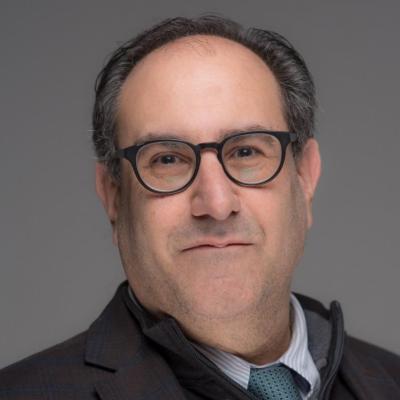
Keynote address by Darren Ranco, PhD, a citizen of the Penobscot Nation, Professor of Anthropology, Chair of Native American Programs, and Faculty Fellow at the Mitchell Center for Sustainability Solutions at the University of Maine. He has a Master of Studies in Environmental Law from Vermont Law School and a PhD in Social Anthropology from Harvard University. His talk reflected perspectives from his work with the Wabanaki Commission on Land and Stewardship, which you can learn more about here.
Topic: Centering Indigenous Peoples and Nations in Land Protection and Conservation: Wabanaki Possibilities
2:15 - 3:30 p.m.
Concurrent Sessions
Let's Talk Legal Topics | Room 168
Buzz Constable, Elizabeth Wroblicka, Susan Crane
Enforceable In Perpetuity: Some Conservation Restriction Provisions that Land Trusts Should Pay Careful Attention To (by Steve Small)
Environmental Due Diligence in Land Acquisition (by Susan J. Crane)
Land transactions, stewardship, regulation, partnering, administration, and financing all have current legal issues. We discussed several of these as well as respond to any questions which may be submitted before are at the session. The discussion attempted to speak to experienced laypersons and attorneys who attend as well as those who present.
Sponsored by:
Leo S. Walsh Foundation, in honor of Elizabeth Wroblicka
Team Up with Your Municipality: DCS Open Space & Recreation Grant Programs | Room 804
Melissa Cryan, Vanessa Farny, Allen Decker
This workshop provided a brief overview of DCS grant programs focused on land protection and/or recreation [Drinking Water Supply Protection, Land and Water Conservation Fund, Parkland Acquisitions and Renovations for Communities, Local Acquisitions for Natural Diversity, Conservation Partnership, Landscape Partnership, Assistance for Small Communities] with an emphasis on examples of how land trusts can/have partnered with municipalities in the past to secure grants for their communities to achieve conservation of priority lands.
Sponsored by:
BSC Group, Inc.
Watershed-Scale Collaboration: Advancing Climate Resilience | Room 174 | was videotaped
Melissa Ocana, Carolyn Norkiewicz, Julie Wood
Recording
Presentation
Collaboration Toolkit Summary
In this workshop, we explored why climate adaptation at the watershed-scale is critical to effectively respond to flooding and drought, and can result in more impactful and equitable benefits for people and nature. We shared work from collaboratives on-the-ground and how we brought them together to amplify their stories through an outreach toolkit. We heard how the state’s Municipal Vulnerability Preparedness Grant Program encourages regional approaches to adaptation, including watershed collaboration, and how collaboratives are exploring land conservation as a climate resilience action. We also facilitated small group discussion about the opportunities for greater collaboration between land trust and watershed scale collaboratives.
Sponsored by:
Buzzards Bay Coalition
Essex County Greenbelt
Kestrel Land Trust
SWCA Environmental Consultants
Tighe & Bond
Forest Vulnerability to Climate Change and Opportunities for Stewardship | Room 163 | was videotaped
Josh Rapp, Christian Marks, Alison Wright-Hunter
Recording
Mass Audubon Forest Vulnerability Assessment
Forests cover 60% of Massachusetts, providing important wildlife habitat, clean air and water, benefits to human health and local economies, and climate regulation through the sequestration and storage of carbon. Mass Audubon and MA DCR led a workshop that examines how forests are vulnerable to climate change, approaches for assessing these vulnerabilities, and opportunities for increasing forest resilience through stewardship. Mass Audubon described the approach they’ve taken to assess vulnerabilities at wildlife sanctuaries across 18,000 acres. DCR described efforts that are part of the Forests as Climate Solutions Initiative to support landowners in assessing climate vulnerabilities and stewardship planning and implementation.
Sponsored by:
New England Forestry Foundation
Sheriff's Meadow Foundation
Using Community Science Programming to Support Your Conservation Efforts | Room 165 | was videotaped
Isabel Bronson, Julie Richburg
Recording
Presentation (PDF)
Interested in learning about the development, implementation, and impacts of community science programs? Join TerraCorps Land Stewardship Coordinator Isabel Bronson and Lead Inland Ecologist Julie Richburg in exploring how they have been using this participatory science approach to support the work and goals of The Trustees. During this presentation, they discussed the development of their long-term grassland bird monitoring community science program and how the data collected by volunteers is aiding in the conservation of grassland obligate bird species, such as the charismatic bobolink, and the adaptation of bird-friendly grassland habitat management on their properties across the state. Additionally, they touched upon the ongoing development of a biodiversity monitoring initiative and bird box monitoring program.
Sponsored by:
Creative Approaches to Hiring and Retaining Staff | Room 803
Jen Plowden, Kate Bowditch, Emma Ellsworth
Presentation (PDF)
Land trusts provide opportunities for individuals to work, day-in and day-out, toward a great mission. Who doesn’t want to help save planet earth and connect people to nature? And while that alone may have been enough to recruit and retain star employees in the past, trends indicate it may not be enough today – particularly if our organizations want to become more reflective of the communities in which we work, which are typically younger and more diverse. In this session, presenters shared statistics about today’s workers and an overview of strategies that organizations across the country are deploying to hire talented staff and retain them. This session highlighted case studies from two land trusts in Massachusetts that are working to address pay equity as well as staff contentment and retention. Come prepared to learn about innovative approaches, including some low-cost ideas you can take back to your organization.
Sponsored by:
Essex County Greenbelt
Land Trust Alliance
Striving to Create an Anti-Racist Land Trust | Room 162
Michelle Chalmers, Christina Horner
Join an interracial team of anti-racist facilitators to explore opportunities to create/advance an anti-racist land trust. Whether you have begun the work or have been wanting to engage your team, come and explore an opportunity to put a plan into action. We examined shared anti-racist language/definitions, why is it important to center anti-racism in your land trust, and how to examine your policies, procedures, website and literature with an anti-racist lens.
Sponsored by:
Berkshire Natural Resources Council
3:30 - 4:30 p.m.
Closing Reception
Outdoor Field Trips
Field trips are included with conference registration. Registration links can be accessed by clicking the title bar of each trip. This chart summarizes the offerings. Meeting place / parking details will be sent to registrants by the host. Each field trip host will contact registrants with any weather-related updates. Walks may be postponed or canceled at discretion of the host. When registering, you will be required to attest that you will not attend if you test positive, or are experiencing possible symptoms of, COVID-19.
Friday, April 26
Sheffield (Berkshires / West)
11:00 a.m. - 3:00 p.m.
Capacity: 20
Floodplain Forest Restoration
Julie Richburg, Lead Ecologist, Inland Natural Resources, The Trustees
Bartholomew’s Cobble lies along the Housatonic River in southern Berkshire County. In 2013, The Trustees with support for the Natural Resources Damages Fund planted 1,700 trees across 10 acres to restore floodplain forest. The three hay fields that were planted have responded differently to the plantings. This walk will visit previously existing floodplain forest as well as the restored areas, comparing differences in overstory and understory composition, use by local wildlife, and the future for the project.
Terrain:
Approximately 1.6 miles along a narrow path. Generally flat but with a few sections of steep grade. Anticipate muddy conditions and wear appropriate footwear to walk through mud or water several inches deep (depending on flood conditions).
Rain date: Saturday, April 27
Easthampton (CT River Valley)
10:00 a.m. - noon
Capacity: 20
River to Mountain: Bridging Landscapes, Bridging Partnerships (Mt. Tom Trailhead Park and the Old Pascommuck historical trail)
Marty Klein, artist/naturalist/forager and past Board member of Pascommuck Conservation Trust, will lead the Old Pascommuck portion
Mark Wamsley, Conservation Director, Kestrel Land Trust, will lead the Mt. Tom portion
The Old Pascommuck Conservation area is Pascommuck Conservation Trust's oldest property, acquired 40 years ago. This property is a prime example of a floodplain forest, with trails along the Manhan River and the oxbow of the Connecticut River. In spring, it is filled with many varieties of wildflowers and bird life is abundant. To reach the trail, there is a slight incline down from a parking area, with several steps to access the lower riverbed trail.
Across a street and several hundred yards to the east, is the recently created Mt Tom North accessible trail. This trail was made possible by a coalition of the Commonwealth, the City of Easthampton, and our two land trusts. It is a gently climbing switchback trail through a forest, with benches along the way. The trail is navigable for power wheelchairs or chairs with human assist. At the top are wide sloping fields and several picnic tables where visitors can stop and enjoy the view of the Oxbow and the hills beyond.
Worcester area
1:00 - 3:00 p.m.
Capacity: 25
Revitalizing Wetlands in an Urban Watershed: Broad Meadow Brook Restoration
Tom Lautzenheiser, Senior Conservation Ecologist, Mass Audubon
Kate Bentsen, Ecological Restoration Specialist, Mass DER (Division of Ecological Restoration)
Martha Gach, Education Manager, Mass Audubon
The Broad Meadow Brook Restoration Project is a partnership between the City of Worcester, the Division of Ecological Restoration, the Blackstone Watershed Collaborative, and Mass Audubon. The project focuses on an approximately 40-acre, highly degraded wetland system within an urban watershed, embedded within environmental justice communities. The project's goal is to achieve a dynamic, diverse, and self-sustaining stream and wetland ecosystem that provides a full suite of ecosystem services, accessible for the benefit and enjoyment of neighbors, residents, and visitors. Currently in an assessment and design phase, the project includes many challenges and complexities typical of urban watersheds. In this field trip, we will explore sections of the project site to demonstrate important project components and constraints.
Terrain:
The planned walk route is almost entirely level and even, on a gravel surface, for an approximately 1.5-mile out-and-back hike. The majority of this route is wheelchair accessible. Bathrooms are not available in the project area.
Hardwick (Central)
10:00 a.m. - noon
Capacity: 25
Wheelwright Dam Removal Project
Cynthia Henshaw, Executive Director, East Quabbin Land Trust
Chris Hirsch, Dam Removal Manager, Mass DER (Division of Ecological Restoration)
Joseph Gould, Restoration Specialist, Mass DER (Division of Ecological Restoration)
Join the East Quabbin Land Trust and the Massachusetts Division of Ecological Restoration for a tour and discussion of the Wheelwright dam removal project. The project partners have been working since 2018 to remove the Wheelwright dam and create a critical connection point for the Mass Central Rail Trail. Removal of this 500 foot long, 17 foot tall dam will reconnect approximately 130 river miles in the Ware River watershed and provide wonderful benefits for local fauna and flora.
Terrain:
There will be some moderate uneven terrain and off trail hiking. The walk is approximately 10 minutes from the parking area to the dam. There are no bathrooms available.
Mattapoisett area (Southeast)
10:00 a.m.
Capacity: 20
Mattapoisett River Valley Partnership: Coordinated Watershed Scale Land Conservation and Habitat Restoration on the South Coast
Brendan Annett, Vice President, Watershed Protection, Buzzards Bay Coalition
Come see and learn about how land trusts are working together with towns in the region on coordinated watershed land conservation efforts that have protected thousands of acres in the Mattapoisett River Valley. We’ll also visit and learn about a related partnership that is advancing large scale wetland/stream ecological restoration. These coordinated projects benefit water quality, buffer flooding and drought and enhance the resilience of a regionally important drinking water supply, fish/wildlife resources, outdoor recreation opportunities and local agriculture.
More info available at:
https://www.savebuzzardsbay.org/news/cleandrinkingwatermrv/
https://www.savebuzzardsbay.org/news/mattapoisett-bogs-construction-update/
Terrain:
The tour will include 2-3 miles of walking on trails.
Sponsored by:
MA 401(k) CORE Plan for small nonprofits
Ipswich (North Shore)
10:00 a.m. - noon
Capacity: 25
Landscape Scale Restoration in the Great Marsh
Russ Hopping, Lead Ecologist, Coastal Ecology, The Trustees
This trip will visit the Great Marsh on the North Shore of Massachusetts, where participants will learn firsthand about The Trustees and its partners' efforts to restore salt marsh to better withstand climate change, specifically sea level rise. The trip will look at three nature-based restoration techniques in the marshes at the Crane Estate (i.e., Crane Beach) and how, together with our partners, we are scaling up restoration efforts to more than 8,000 acres.
Terrain:
Approximately 1 mile on flat terrain. Marsh can be soggy and slightly unstable. Please wear boots or shoes you do not mind getting wet and dirty. Participants should expect getting their feet wet and mucky. Bug spray and sunscreen is up to the participant, but bugs are unlikely during April. There is no wheelchair access and walking can be unstable in the marsh. Drinking water is advisable. No rain date. Field trip will only be canceled if steady and/or heavy rain is forecast. Parking instructions will be sent to registrants.
Friday, May 17
Ipswich & Hamilton (North Shore)
9:00 - 11:00 a.m.
Capacity: 20
Community Science Helping Grassland Birds
Julie Richburg, Lead Ecologist, Inland Natural Resources, The Trustees
Join the Trustees to learn how community members are supporting our grassland bird habitat management at Appleton Farms. The farm uses an agroecological management approach to support biodiversity and farm production. Also, come explore the art installation PERCH by Jean Shin which encourages visitors to engage with the sculpture as they participate in bobolink monitoring.
Terrain:
We will be walking along dirt farm roads and trails through fields. Terrain is gently sloping and uneven, sometimes muddy, and fully exposed (limited to no shade).


